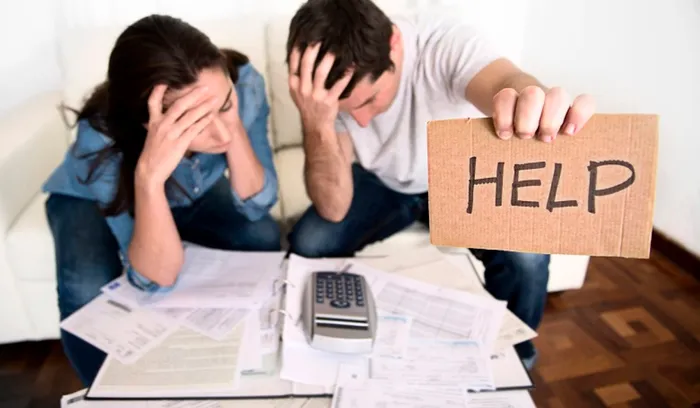REK YOUR CHEQUE: Stay inside and save if possible

PLANNING: Figure how you can financially survive the next few months PLANNING: Figure how you can financially survive the next few months
During the lockdown, there has been a lot of financial information focusing on investing, saving and planning for the future.
Yet, I am surrounded by people who are just struggling.
Many in our communities are not blessed with jobs that continue to pay them in full, or even partially during this lockdown.
Many people are self-employed, work from home, work for unregistered small businesses or do contract work - so the government’s temporary employee/ employer relief scheme or Covid-19 TERS Benefit, which is being paid out by the Unemployment Insurance Fund (UIF), means nothing to them.
The Covid-19 goal of many is very simple: SURVIVE.
This reality does not involve having nest eggs, savings and investments.
Instead, for most people it means having food, water, electricity and a roof over their heads - at least until the end of this lockdown, when they can hopefully start earning money again.
Here are some financial tips during Covid-19 that will help us to flatten the curve quicker, and thus returning to SA being economically active again:
* Stay inside. Please.
Isolation in smaller dwellings is hard, but we still need to try to do it to the best of our ability.
There is no excuse for unnecessarily roaming the streets in search of entertainment.
Our health comes first.
It doesn’t help trying to manage the little money you do have if you are severely ill or dead.

* Stay calm and don’t panic.
As hard as it is, we should be calmly looking at options and solutions to the problems we face.
Track your expenses and draw up a budget.
Being home is the best time to get an overall view of your finances.
Write down everything you buy, this includes groceries, electricity, petrol, fast food, alles.
Keep all your slips neatly and start recording every cent you spend.
* Stop all and any unnecessary spending.
Now is not the time for “oor en toor”.
Some people get into the mindset of ‘things are bad, I’ll feel better if I spoil myself and my kids’.
This is not a good approach, especially if you are unsure of having an income in the coming months. We cannot survive on love and fresh air, people!
* Bored? Start digging out the paperwork.
You have the time, so dig out all your financial contracts and paperwork.
Go through the documents and make a note of who and what you owe.
Have a look at the interest rate for each debt.
Start paying back the skuld with the highest interest rate and then close the account if you do not need it anymore.
* Scale down.
Now is the time to pinch your pennies so cancel subscriptions that you don’t need.
Cancel your DStv or switch to a cheaper package.
Make sure to check out the terms and conditions and cancellation clauses and penalties applicable.
If it’s cheaper to wait two or three months to cancel, for example, your gym membership, then rather wait than pay an expensive penalty.
Check your medical aid and see what your options are to scaling down to cheaper, and sometimes more suitable packages.
If possible, do not skip medical aid and insurance premiums if you wish to remain covered.
As yet, no “payment breaks” have been announced for these services.
Terms and conditions apply, but in most cases, if you do not pay, your cover stops and you cannot claim.
* Talk to your children about the financial situation in the house.
If things are tough and there needs to be a tightening of belts to get through the next few months, then your children must be aware of the situation, so that they can come to the party too.
* Make a point to communicate with your creditors.
Rather than you simply not paying your debt, creditors want to hear from you to see how they can assist.
Banks are open, but most stores and creditors are not.
Make a note of who you want to speak to about making lower repayments now and once lockdown is over.
If negotiating with your creditors is hard for you, then speak to a registered debt counsellor who can act on your behalf.
The larger debt counselling firms are operational throughout lockdown.

DEBT: Calculate all expenditures
* Save money on the way you do things.
While it’s not always possible to put money under the mattress or have a savings account, we can still save, by making small changes to our day to day lives.
Switch off your geyser during the day.
If you save R10 a day on electricity this way, it will amount to R300 a month, that can go towards something else.
Make lang souse, and freeze any leftovers for potluck night.
Soups and bredies (even without meat) go a long way these days.
Medicines are costly.
Make your own immune system boosters.
Check for specials on cellphone data and airtime deals.
The most important bit of advice that I can give today is this:
Don’t try keeping up with the Joneses - en moenie die blink kant bo hou nie.
We are all in this together, ask for help and take help when it is offered.
It’s OK to be worried and stressed about your finances.
Realise that it’s OK not to be OK, but that this too shall pass.

PLANNING: Figure how you can financially survive the next few months
It’s OK for the house to be untidy, for the children to wear their PJs whole day.
These are unprecedented times in world economies and in our households.
Times are tough - but so are we.
We will survive Covid-19.
In the meantime, become informed about your financial rights and payment options.